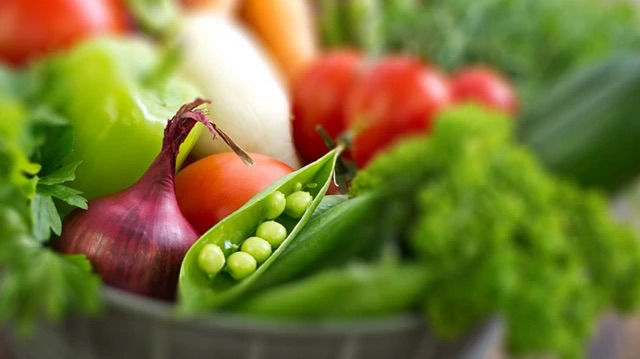Good eating habits start early, so it’s important to teach your baby to eat a wide variety of foods during the weaning stage. Discover how introducing a range of foods gives the right balance of protein, carbohydrates, fats, vitamins and minerals essential for their future health, growth and development.
Weaning foods variety
In the balance
A varied diet is key
?ts=1701285588461&dpr=off)
Providing good nutrition through variety
Good nutrition supports your baby’s rapid development. Introducing a variety of nutritionally balanced foods from the earliest stages of weaning is the best way to encourage healthy eating habits that can last a lifetime.
Babies are born with very few food preferences, but with a strong ability to learn to like new foods.
Breast milk's role in encouraging food variety
Among its many benefits, breast milk carries flavours from a mother’s diet, which may encourage a baby’s acceptance of a variety of foods. So, if you eat a healthy, well-balanced diet, it’s likely that your baby will too.
Infants fed formula milk are less likely to be accepting of new flavours, so if you’re bottle-feeding, it’s important to give your baby a varied weaning diet. Introducing them to lots of different tastes and textures supports a greater approval of new foods.
Babies fed a more varied diet are less likely to become fussy eaters in later life.
Introducing new foods, tastes and textures
Puréd vegetables and fruit are ideal first weaning foods for your baby. As well as being an excellent source of nutrients, familiarity with many different vegetables at an early age can lead to your child eating more vegetables and fruit in later life. Many mums also use a baby rice, such as Aptamil Organic baby rice, during the early stages of weaning. Made up with breast milk or formula, this can be offered on its own or mixed with puréed fruits or vegetables.
Studies suggest introducing a variety of puréed vegetables alongside fruit, as your baby will already have a sweet palate from drinking breast milk or formula. This will help them learn to accept savoury and more bitter tastes, as well as the sweet and sour combinations of fruit.
While it’s tempting to make sour or bitter flavours more appealing by mixing them with sweet tastes, there is little evidence that this really helps. What’s more effective is introducing a wide variety of flavours as early as possible in the weaning process. It’s been shown that babies fed a variety of fruit and vegetables are more likely to accept other novel tastes, such as puréed chicken, than those fed on a less varied diet, because they’ve been exposed to, and are more used to eating, lots of different tastes, smells and textures.
 Try introducing puréed vegetables before fruit, as your baby may already have a sweet palate from drinking breast milk or formula
Try introducing puréed vegetables before fruit, as your baby may already have a sweet palate from drinking breast milk or formula
Time and patience – the key to successful weaning
There is no need to introduce foods one at a time unless there is a history of food allergy in your baby’s immediate family. Offer the same new foods for a few days, even if your baby turns them down at first. Several studies have shown that it can take many attempts (usually 8–10 tries) for a baby to accept a new food, so keep persevering. Many parents give up after just a few attempts, believing their child simply doesn’t like it, when in fact they are may still be getting used to a new food or flavour. Persistence can pay off, so don’t be discouraged – keep trying.
Next steps
- Once your baby is over 6 months of age, meat, fish, pulses and eggs are valuable forms of protein.
- If you are feeding your baby a vegetarian diet, include a range of pulses such as chickpeas, lentils and kidney beans. Nuts can also be introduced, provided they are ground finely.
- Studies have shown experimenting with new and varied textures early on in your baby's diet can lead to fewer food refusals and a better acceptance of new foods in later childhood.
- Giving your baby more than one food at each meal, such as a savoury course followed by a sweet course, may increase their acceptance of new foods.
Related articles

Need some help?
You can get quick answers to common questions in our FAQs.
Alternatively, if you need help with general pregnancy or baby advice, or maybe on using or ordering our products - our expert team are always on hand to talk about feeding your baby.
- Gerrish JC, Mennella JA. Flavor variety enhances food acceptance in formula-fed infants. Am J Clin Nutr 2001;73(6):1080-5.
- Nicklaus S. Children’s acceptance of new foods at weaning. Role of practices of weaning and of food sensory properties. Appetite 2011;57(3):812-5.
- Habeat. Vegetables and fruit - Help your child to like them [Online]. 2014. Available at: www.habeat.eu/media/file/BookletHabEat_Electronic%20version.pdf [Accessed April 2014]
- Caton S et al. Learning to eat vegetables in early life: the role of timing, age and individual eating traits [Online]. 2014. Available at: www.plosone.org/article/info%3Adoi%2F10.1371%2Fjournal.pone.0097609 [Accessed July 2014]
Last reviewed: 5th September 2016





